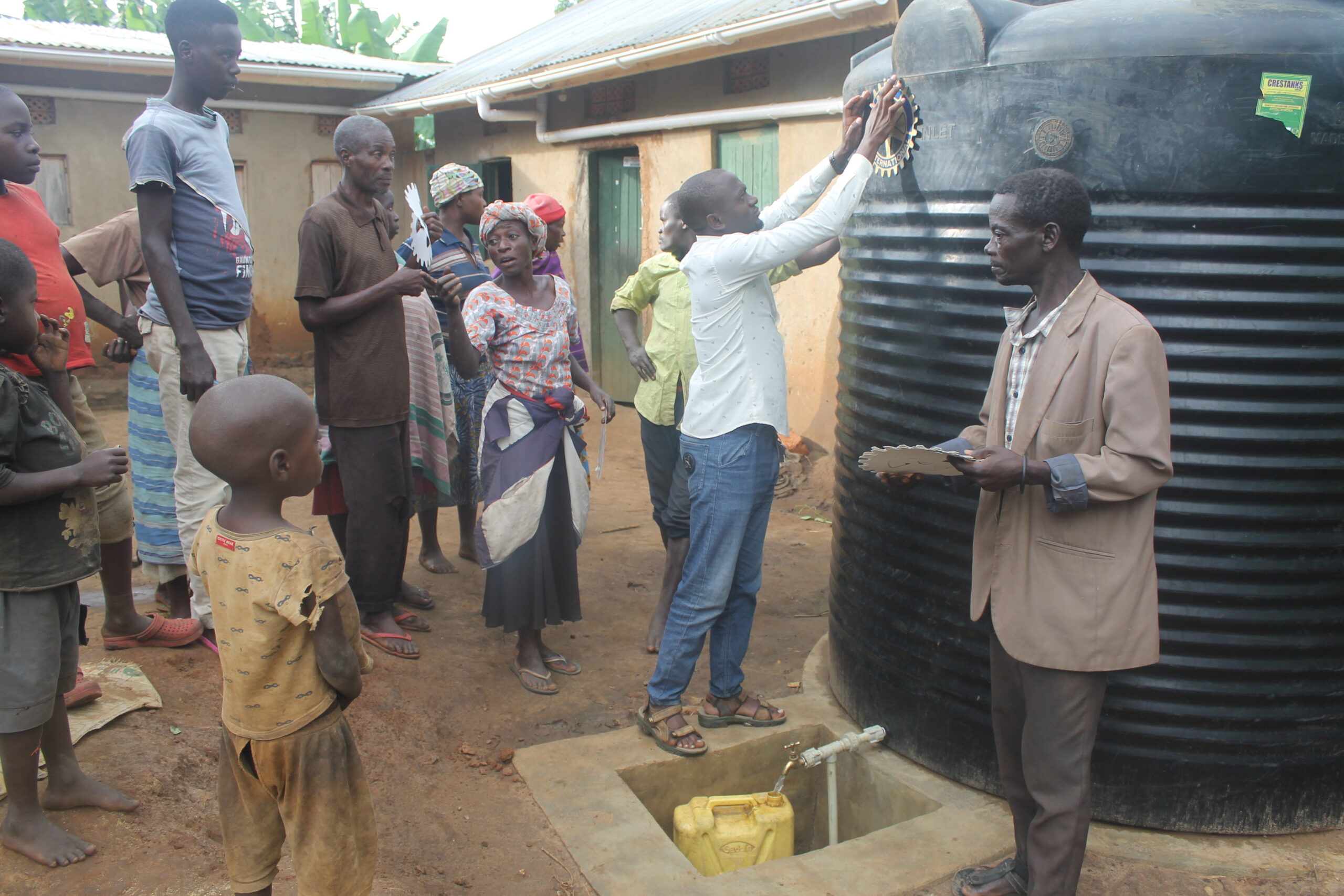Water and Sanitation

People fetching clean water
In the absence of a potable water supply and sanitation facilities in areas where WOOVC operates, the rate of death associated with the most common communicable diseases has increased steadily in the last 5 years. These infections are both avoidable and preventable with clean water.
On average it takes one hour to make a round trip to the nearest source of water. Most of these water points do not meet minimum hygiene standards and at some, like streams and ponds, humans and animals use the same water source causing further contamination. Water fetching is primarily a role of women and girls as part of their housekeeping responsibilities and, by its nature, this exposes them to sexual and gender-based violence. Additionally, when children are tasked with this responsibility, their ability to attend school becomes limited.
This was the drive behind the construction of 8 water points in September and October of 2023 which transformed and continue to shape the lives of families in local communities. With support from Rotary Club of St. Joseph Benton-Harbor (Michigan, USA), Rotary District 6360 and the International Rotary Foundation, WOOVC worked with local communities to construct 8 Rain water harvesting points in Kabuga Parish. The total cost of the project was Ugx 34 million with each point comprising of a 6000L plastic tank, tank base, gutters and tap stands. Each point serves 10 households and is managed by a water committee consisting of members from among the beneficiaries. The maintenance and sustainability of these points is the responsibility of the committee with oversight from WOOVC staff.
We focus on risk reduction for avoidable diseases in local community through advocacy for good health practices which includes disease prevention measures, clean and safe water, good food hygiene, etc.


